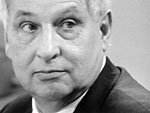Pity the poor city of Seattle. Since May, it’s been paralyzed due to the inaction and vagueness of the evil state Public Disclosure Commission.
Well, that’s what the city would like you to think about the PDC—state government’s election-rules referee. A couple months back, Seattle brought a mighty convoy down to Olympia to petition the PDC for definite rules on what information the city can give citizens. The case that has supposedly turned the knees of city officials to Jell-O is a complaint filed by activist Chris Leman. In it, Leman claims that the city illegally used its Pro Parks 2000 committee to organize citizens to lobby Olympia legislators in support of a new tax for Seattle’s zoo and aquarium (an action that, for want of a better term, state regulators have dubbed “indirect lobbying”).
The PDC sent the Seattle contingent home unhappy, as the commission has a strict policy against issuing advisory rulings in cases in which there is an active complaint. Actually, if the city’s lawyers had simply read the PDC’s rules, they could have saved the trip—but then Olympia would have missed a spectacular road show featuring the snooty high-paid outside counsel (C. James Frush, of Gordon, Thomas, Honeywell, etc.), the put-upon city attorney (Sandra Cohen), the dedicated council president (Margaret Pageler), the concerned deputy mayor (Tom Byers), and the downcast city lobbyist (Cliff Traisman). You couldn’t put together a lineup that says Seattle better than this one unless you added an Eagle Hardware pitch from Edgar Martinez. Unfortunately, in addition to asking the PDC to violate its own stated policy, the members of the city contingent faced another serious problem—they were all talking crap.
Their first argument, that the Pro Parks Committee violations consist of a few minor technical blunders, is disingenuous. The very reason the city set up the Pro Parks Committee was to discuss, criticize, and later advocate for the parks tax legislation. Its activities were thoroughly documented, as is Leman’s PDC complaint.
The second argument, that city officials are somehow constrained in their everyday behavior by having this heavy matter hanging over their heads, doesn’t wash either. Look, just don’t set up any groups to coordinate citizen lobbying on a specific piece of state legislation and you’ll be fine.
Having tanked on their first two arguments, the city reached too hard for their third. The claim that the state’s rules are vague and that the issue of indirect lobbying “wasn’t on the radar screen” of city officials just doesn’t wash. Only two years ago, the PDC briefed a City Council committee (and Cohen) on this very issue. Council members Sue Donaldson and Jan Drago both admitted at the time that the state’s citizen lobbying rules—although perhaps unfair—were at least clear. Perhaps the city’s legal eagles figured enough time had passed to claim that everything clear is vague again.
And allow us one more gripe about hired legal gun Frush. At one point, he hinted that Leman’s complaint was a mere harassment tactic that might be repeated by the activist or one of his associates in an attempt to gum up the city process. That’s a cheap shot—Leman’s complaint is detailed, well-documented, and pretty damning stuff to boot. Look, C. James, this character assassination stuff may play well at Gordon, Thomas, Rolex, and Beemer Ltd., but we’ll thank you to remember your manners when snacking at the public trough.
According to PDC executive director Vicki Rippie, commission staffers are examining documents in the case and will conduct personal interviews in October.
Contribution limit change analyzed
Former Civic Foundation director Brian Livingston is back in the fray with the Washington Forum.
The Forum, a nonprofit, nonpartisan research center, plans to publish studies and conduct public forums on political reform efforts within the state. Among the other founders: onetime Washington Ceasefire Foundation executive director Victoria Pearson and former Microsoft exec Bruce McKinney. The group’s first project stays close to home: a just-released analysis of how raising the city’s political contribution limit from the existing $400 to $800 would affect incumbent city officials. And, no surprise, the numbers indicate that boosting campaign giving limits would tend to aid incumbents, not challengers.
The study assumes that 50 percent of any campaign’s maximum givers would write $800 checks if allowed to. And, as incumbents always draw more maximum donations than challengers, they would likewise get a bigger cash boost from the rule change—a boost favoring incumbents by a five-to-one margin, when calculated using figures from the last two citywide campaigns. The City Council’s Legislative Committee will discuss the proposed $800 contribution limit on September 22.
Nefarious plot exposed
Is there a right-wing conspiracy against gay judicial candidates in King County?
An anonymous member of SEAMEC, the city’s gay political endorsement group, was convinced enough to call the Seattle Gay News—although the paper’s article on the matter was sketchy enough that the headline should have read “nebulous nonsense,” not “nefarious plot.”
Here’s one key bit of evidence: Each of the four gay attorneys running for King County Superior Court has an opponent. Well, that happens in politics, especially as one is running for an open seat and the other three are recent bench appointees. Also fueling the flames: The guy running against Judge Mary Yu was endorsed by the King County Republican Party! OK, this may be a strange concept for Seattle voters, but Republicans are allowed to weigh in on King County offices.
Consider an even more curious fact from that same race: Although Yu has far less trial experience than opponent Mike Morgan, she got an “exceptionally well qualified” rating from the King County Bar Association and Morgan was rated “adequate.” Why doesn’t somebody investigate that?






